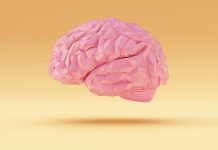
In a pioneering clinical trial, researchers at the University of Cincinnati’s Lindner Center of HOPE have uncovered promising results using electrical stimulation of the spinal cord to treat depression.
This study, recently published in the journal Molecular Psychiatry, highlights a novel, noninvasive approach to managing major depressive disorder.
The principal investigator, Dr. Francisco Romo-Nava, has been focusing on the crucial role of brain-body communication in psychiatric disorders.
His research suggests that a key factor in mood regulation is the neural pathway that connects the brain and body, particularly how the brain interprets signals from the body.
In the context of major depressive disorder, Dr. Romo-Nava theorizes that an overload of information in this brain-body circuit, possibly due to chronic stress, could lead to a breakdown in mood regulation.
The study aimed to explore whether modulating this interaction could offer therapeutic benefits.
The approach developed by Dr. Romo-Nava involves noninvasive spinal cord stimulation, which he patented in 2020.
This method is designed to reduce the flow of information in the brain-body circuit, thereby aiding the brain in re-establishing balance and regulation.
The pilot trial involved 20 patients diagnosed with major depressive disorder. They were randomly assigned to receive either active spinal cord stimulation or a control version of the current.
Over eight weeks, each participant underwent 24 stimulation sessions at the Lindner Center of HOPE, each session lasting 20 minutes.
The results of the trial were encouraging in terms of both feasibility and safety. Patients tolerated the stimulation well, with only mild side effects like skin redness and temporary itching or burning sensations.
Most importantly, those who received the active stimulation showed a greater reduction in depressive symptoms compared to the control group.
However, Dr. Romo-Nava cautions that the study’s small sample size means these findings need to be replicated in larger studies.
One interesting observation was a cumulative decrease in diastolic blood pressure after each session, suggesting a potential effect on the autonomic functions regulated by the brain-body circuit. This finding indicates that the stimulation might be inducing a lasting change in this circuit.
Looking ahead, the research team plans to seek additional funding for a larger trial and to develop a portable version of the spinal cord stimulation device.
The ultimate goal is to establish the safety and effectiveness of this method for treating psychiatric disorders and determine the optimal dosage, frequency, and conditions for its use.
This trial marks a significant step forward in the field of psychiatric treatment, offering hope for a novel and noninvasive approach to managing major depressive disorder and potentially other psychiatric conditions.
If you care about depression, please read studies that vegetarian diet may increase your depression risk, and Vitamin D could help reduce depression symptoms.
For more information about health, please see recent studies that ultra-processed foods may make you feel depressed, and these antioxidants could help reduce the risk of dementia.
The study findings can be found in Molecular Psychiatry.
Copyright © 2023 Knowridge Science Report. All rights reserved.



